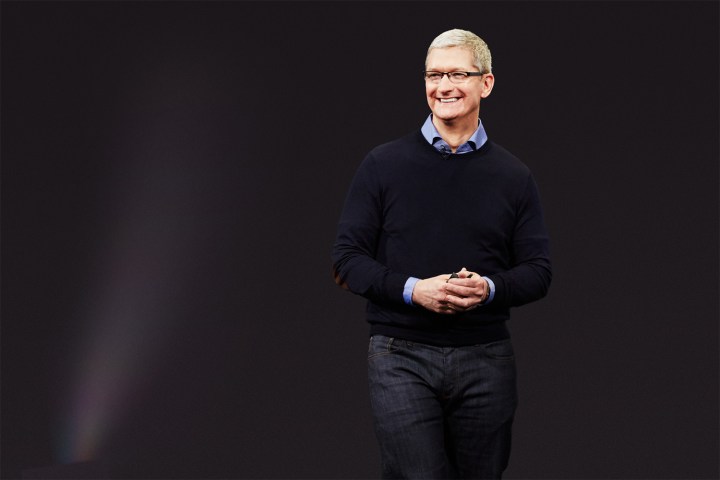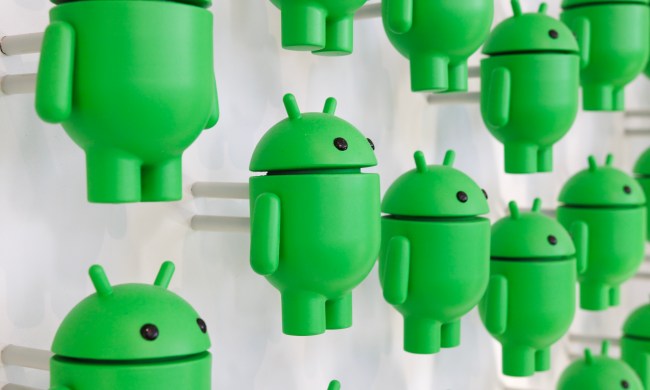
The brief said the agencies’ portrayal of the All Writs Act, a 200-year-old statute that gives courts substantial autonomy in issues of law enforcement, as an “all-powerful magic wand” was an attempt to “rewrite [the] history” of the statute, and said that the FBI was violating the rights of Apple engineers by proposing they spend “weeks” in a “super-secure facility” on behalf of the agency. And it further accused investigators of infringing on Apple’s right to due process of law by forcing it “on a mission that is contrary to [its] values.”
It’s the most recent rebuttal of the U.S. government in a case with far-reaching implications for electronic security. At stake is investigators’ authority to force private tech companies to implement a “backdoor” in secured devices and services. In February, a California court granted the FBI an order to force Apple to rewrite the iPhone’s operating system in order to bypass Farook’s passcode, an order which if upheld could set a “dangerous precedent,” Apple CEO Tim Cook has said. The FBI maintains that the scope of the order is limited to a single iPhone and that it poses no threat to Apple’s or any other company’s encryption policies.
Apple deconstructs the FBI’s case
In Tuesday’s filing, Apple attacked the legal foundations of the government’s case. Lawyers for the company argued that forcing engineers to rewrite the iPhone’s operating system constituted both an overstepping of the investigators’ constitutional bounds and a violation of the company’s free speech rights. “[The] [w]riting of code requires a choice of (1) language, (2), audience, and (3) syntax and vocabulary, as well as the creation of (4) data structures, (5) algorithms to manipulate and transform data, (6) detailed textual descriptions explaining what code is doing, and (7) methods of communicating information.”
“I believe that Apple’s iOS platform is the most-attacked software platform in existence.”
Apple also responded to several specific claims made by the Department of Justice and FBI. The responses came from Apple engineer Erik Neuenschwander, who had strong words for the government’s claim that, “there is no reason to think that the code Apple writes in compliance with the order will ever leave Apple’s possession.”
“I believe that Apple’s iOS platform is the most-attacked software platform in existence,” Neuenschwander said in the brief. “Each time Apple closes one vulnerability, attackers work to find another. This is a constant and never-ending battle. … The protections that the government now asks Apple to compromise are the most security-critical software component of the iPhone — any vulnerability or backdoor, whether introduced intentionally or unintentionally, can represent a risk to all users of Apple devices simultaneously.”
Today I learned that #Apple has way better lawyers than the DOJ.
— Edward Snowden (@Snowden) March 15, 2016
He then went on to attack the FBI’s argument that Apple’s code to crack the San Bernardino shooter’s phone can only be used on that single device.
“Apple does not create hundreds of millions of operating systems each tailored to an individual device,” he said. “Each time Apple releases a new operating system, that operating system is the same for every device of a given model. The operating system then gets a personalized signature specific to each device. … Once GovtOS is created, personalizing it to a new device becomes a simple process. If Apple were forced to create GovtOS for installation on the device at issue in this case, it would likely take only minutes for Apple, or a malicious actor with sufficient access, to perform the necessary engineering work to install it on another device of the same model.”
Apple says FBI and DOJ are ‘reckless’ and ‘uninformed’
At a press conference on Tuesday, Apple’s legal team characterized the arguments of the FBI and Justice Department as “reckless” and “uninformed.” It called the government’s recent assertion that it might have the authority to seek the iPhone operating system’s source code and signing key — tools which would grant law enforcement the ability to unlock virtually any iPhone — “catastrophic.” And it pointed to the government’s shifting narrative regarding the iPhone’s iCloud password as evidence of a shaky legal foundation.
“Apple does not create hundreds of millions of operating systems each tailored to an individual device.”
“The Justice Department’s shifting, contradictory positions on the issue — first blaming the passcode change on the County, then admitting that the FBI told the County to change the passcode … and now trying to justify the decision in the face of Director Comey’s admission that it was a mistake — discredits any notion that the government properly exhausted all viable investigative alternatives before seeking this extraordinary order from this court,” lawyers for Apple said.
The Justice Department and FBI, meanwhile, have called Apple’s arguments “desperate” and “misleading.” In a February court motion, the Justice Department blamed the company’s reluctance to assist with the investigation on “a perceived negative impact on its reputation.” Apple has vehemently denied that accusation. “Of [all of Apple’s] advertisements, not a single one has ever advertised or promoted the ability of Apple’s software to block law enforcement requests to the contents of Apple devices,” Apple senior director Robert Ferrini said in a sworn statement.
The government’s persistence may push Apple to implement stricter encryption mechanisms in the future. According to the Wall Street Journal, the company’s working to beef up its iCloud security so that it won’t be able to decrypt backups of iPhone data. Under a legal precedent known as the third-party doctrine, companies such as Apple that store user data are subject to legal requests for that data. Encryption wouldn’t exempt the company from purview, but would make the data essentially unusable.
The dispute between Apple and the investigators has drawn support on both sides. Tech companies, human rights groups, privacy advocates, and the United Nations have expressed support for Apple. Law enforcement and government officials, meanwhile, have largely sided with Justice Department and the FBI In a recent speech at SXSW in Austin, Texas, President Obama emphasized the need to strike a balance between “safety” and “security.”
Apple’s conclusion in its final brief looked at a specific quote by Justice Louis Brandeis, when the judge reflected on “the progress of science beyond wiretapping.”
“’The greatest dangers to liberty lurk in insidious encroachment by men of zeal, well-meaning but without understanding,'” Apple quoted in the brief. “In this case, the government’s motivations are understandable, but its methods for achieving its objectives are contrary to the rule of law, the democratic process, and the rights of the American people.”
You can read the full brief below:
Updated on 03-17-2016 by Julian Chokkattu: Added more quotes from Apple’s brief.


